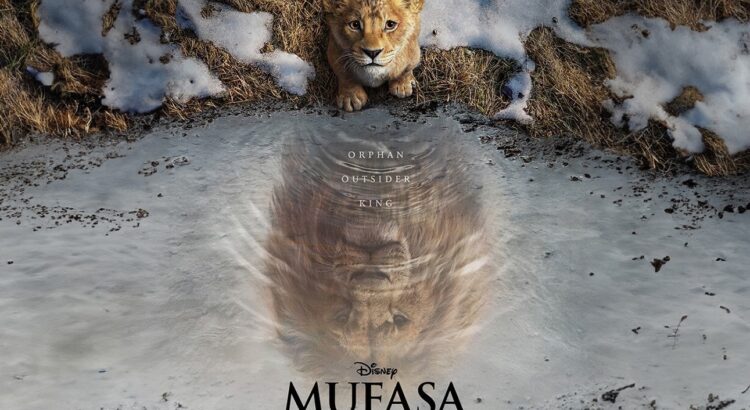Despite the many negative reviews surrounding the musical drama film Mufasa: The Lion King, I actually really enjoyed it. The storyline acts as both a prequel and a sequel to the original animated The Lion King. While it’s not life-changing or particularly essential, it’s a fun film that adds to the world-building of the original in an endearing way. Perhaps it’s because I had low expectations and didn’t know exactly what to expect, but I found the online reviews overly harsh for a movie primarily directed toward children.
The plot begins with the lion cub Kiara, Simba’s daughter, who is frightened by a large thunderstorm. She doubts her capabilities and expresses that she could never be brave like her grandfather, Mufasa. In response, Rafiki, an elderly and wise mandrill, tells her a story to encourage her. He recounts how Mufasa was at her age and how he grew up to become the great king we saw in The Lion King. Mufasa, who we originally see as proud, confident, and courageous, is depicted as more vulnerable and dispirited in his youth. He struggles to believe in himself or accept praise, which seems hard to believe given his personality in his adult form. Through the animals Mufasa encounters on his journey, the film explores themes of family, belonging, and love. His journey proves his worthiness as king and highlights the qualities that make him a true leader. The plot is a coming-of-age story, fitting for its intended audience. This aspect resonated with me, and I believe many children would connect with it too.
The narration is engaging, with the story progressing at a good pace. However, while Mufasa’s character development is well-paced, the development of other characters either lacks depth or, particularly toward the end, feels rushed. As the movie reaches its climax, the character arcs become hurried, especially in the conclusion, which makes their actions seem almost out of character. One factor that held the character development back was the CGI animation. While the visuals were strikingly realistic and beautiful, the realism made it harder for characters to express themselves facially or display more creative body language. It also became difficult to differentiate the lions, as they generally shared the same appearance aside from slight changes and their voices. While these details may stick out more to adults, younger children may not notice them as much, meaning a cartoon version might have appealed to a wider audience.
This placed a greater emphasis on the voice acting and music, which I think the film did well. The instrumental soundtrack was a great homage to the original, with many elements inspired by or directly recreated from it. I also appreciated that there was often music playing in the background. In addition to the bright sunshine and natural scenery, this contributed to the triumphant and joyful emotions in the film. However, one disappointing aspect was the singing, which I felt could have been of higher quality, as it could have been another opportunity to express the character’s personality.
I think the film’s weaknesses largely stem from the characters not feeling as relatable. However, most of the movie’s strengths lie in its overarching messages and foreshadowing of events that occur in the original. I think it would be a great film for young children to understand self-growth, confidence, and friendship. Though it may be an unpopular opinion, I don’t think it is a waste of time or detracts from the original The Lion King in any way, unlike other prequels and sequels I’ve seen. I would still recommend it to people of all ages, but it’s important to approach it with an open mind.



